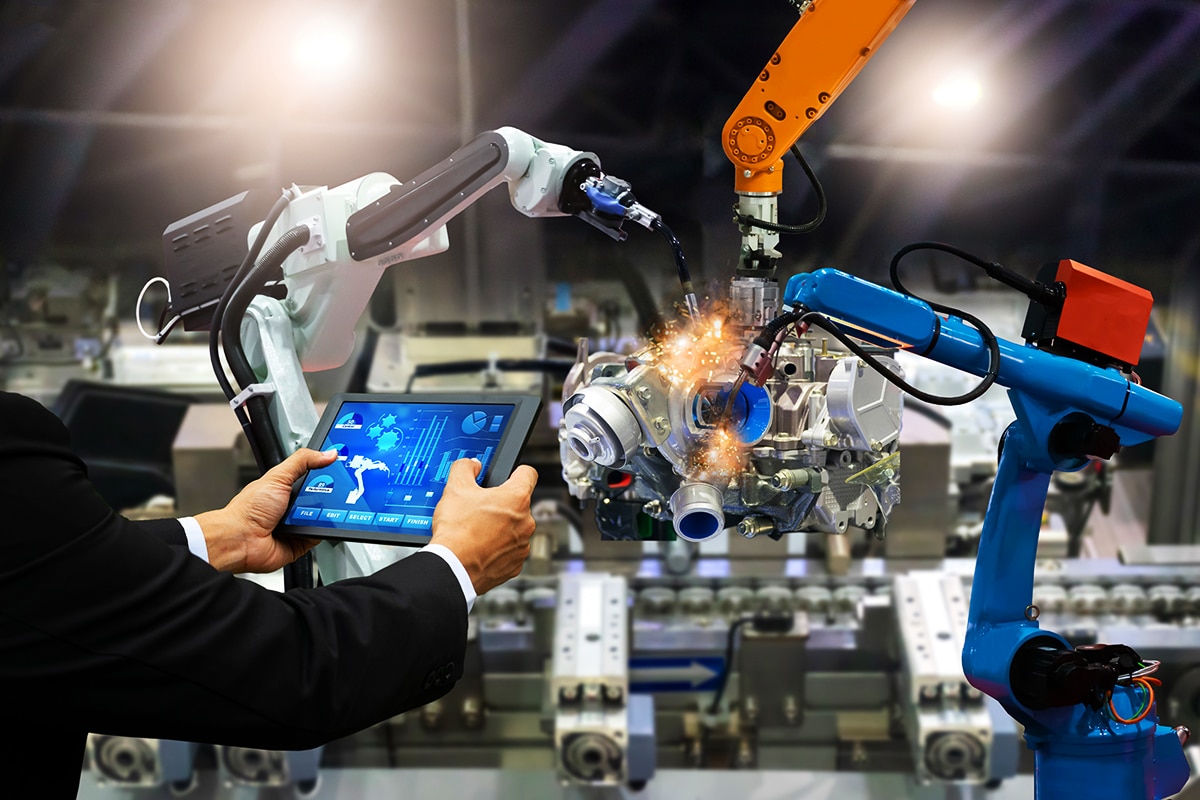Industry 4.0: The Age of Digitalization and Smart Manufacturing
Gone are the days when manufacturing processes were simply a matter of assembling raw materials. With the arrival of Industry 4.0, the manufacturing landscape has undergone a massive transformation. Industry 4.0, also known as the Fourth Industrial Revolution, is the age of digitalization and smart manufacturing, in which physical and virtual systems are integrated to form a highly efficient production system.
Industry 4.0 has the potential to revolutionize manufacturing processes, creating a more connected, automated, and customer-centric manufacturing ecosystem. By integrating the latest technologies such as Artificial intelligence (AI), the Internet of Things (IoT), blockchain, machine learning, big data analytics, and cloud computing, manufacturing companies can streamline their operations, reduce costs, improve efficiency, and enhance product quality.
The Journey towards Industry 4.0
To embrace the future of Industry 4.0, manufacturing companies must first digitalize their existing processes. They need to create a digital twin of their manufacturing process by incorporating digital technologies such as sensors, real-time monitoring, and predictive maintenance. A digital twin is a virtual replica of the physical manufacturing process that can be used to optimize and simulate the manufacturing process, trace the product, and even troubleshoot remotely.
The next key step in the Industry 4.0 journey is connectivity. Manufacturing companies must connect every aspect of their operations, from suppliers to customers, to create a fully integrated and transparent value chain. By using IoT-enabled sensors, companies can monitor data from different types of equipment, gaining real-time visibility into the production process. This enables manufacturers to make data-driven decisions that can increase production efficiency and quality while minimizing downtime.
Automation and Artificial Intelligence
One of the key features of Industry 4.0 is automation. By using robots and automation technologies, manufacturers can reduce costs, improve efficiency, and enhance product quality. Automation also reduces the risk of workplace accidents, as robots can take care of the most dangerous and monotonous tasks, allowing human workers to focus on more sophisticated and creative tasks.
One of the most significant advances in Industry 4.0 is the use of Artificial Intelligence (AI) in manufacturing processes. With AI, manufacturers can automate complex tasks, such as predictive maintenance, quality control, and inventory management. AI-powered tools can analyze a vast amount of data and give insights into the manufacturing process, helping companies optimize production and reduce waste.
Embracing Industry 4.0: Challenges and Opportunities
Though Industry 4.0 promises impressive benefits, many companies face significant challenges in adopting the latest technologies. One of the key barriers to Industry 4.0 adoption is the cost of implementation. Upgrading to modern equipment and adopting new technologies can be expensive, and not all companies have the resources to make such investments.
Another critical issue in introducing Industry 4.0 is the skills gap. Industry 4.0 requires specialized digital skills, such as data analytics, machine learning, and AI, which are not easy to find. Upgrading the skills of the existing workforce is essential to ensure that individuals are not left behind in this digital revolution.
Conclusion: Towards a Bright Future
Despite the challenges, the opportunities offered by Industry 4.0 are immense. Manufacturers that embrace the latest technologies and the principles of Industry 4.0 are likely to be more successful than those that do not. By adopting smart and connected manufacturing processes, companies can reduce costs, increase efficiency, and improve customer satisfaction. Embracing Industry 4.0 can also help manufacturing companies to stay ahead of the competition and secure their place in the future of manufacturing.
To ensure the success of Industry 4.0, manufacturers must create a systematic and phased approach to digitalization and must have an appetite for change. It is time for companies to invest in the future by embracing the digital revolution that is Industry 4.0, and reap the benefits that innovative technologies such as AI, machine learning, and IoT can bring. Industry 4.0 is the future of manufacturing, and companies that embrace it will thrive in the years to come.

Deja una respuesta